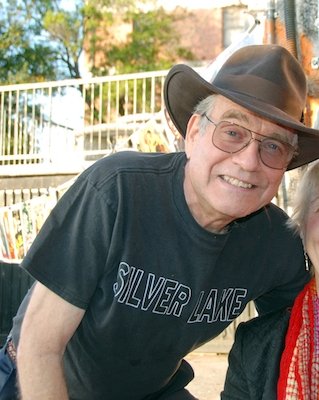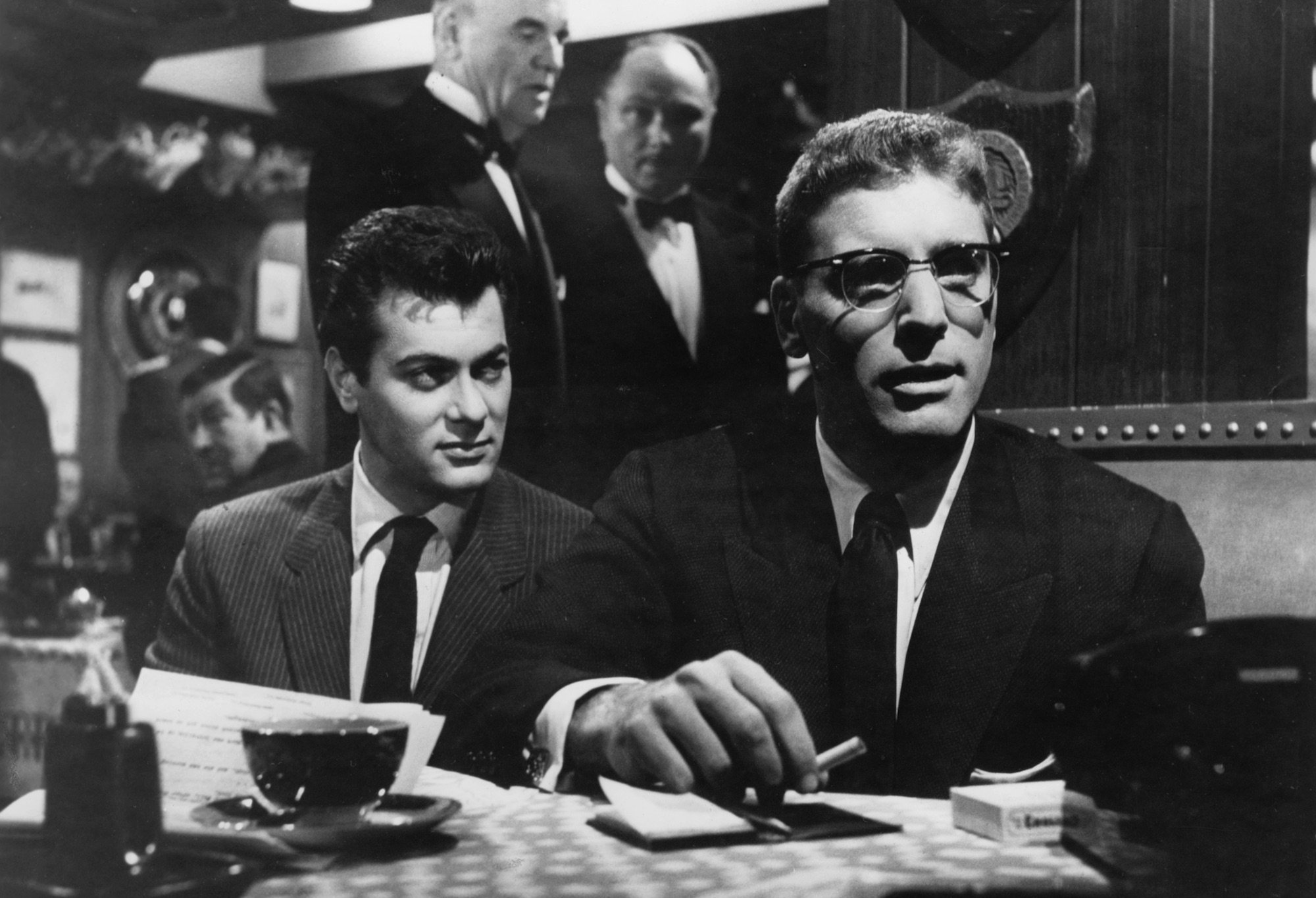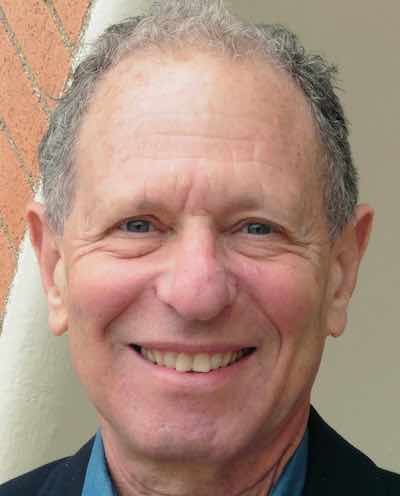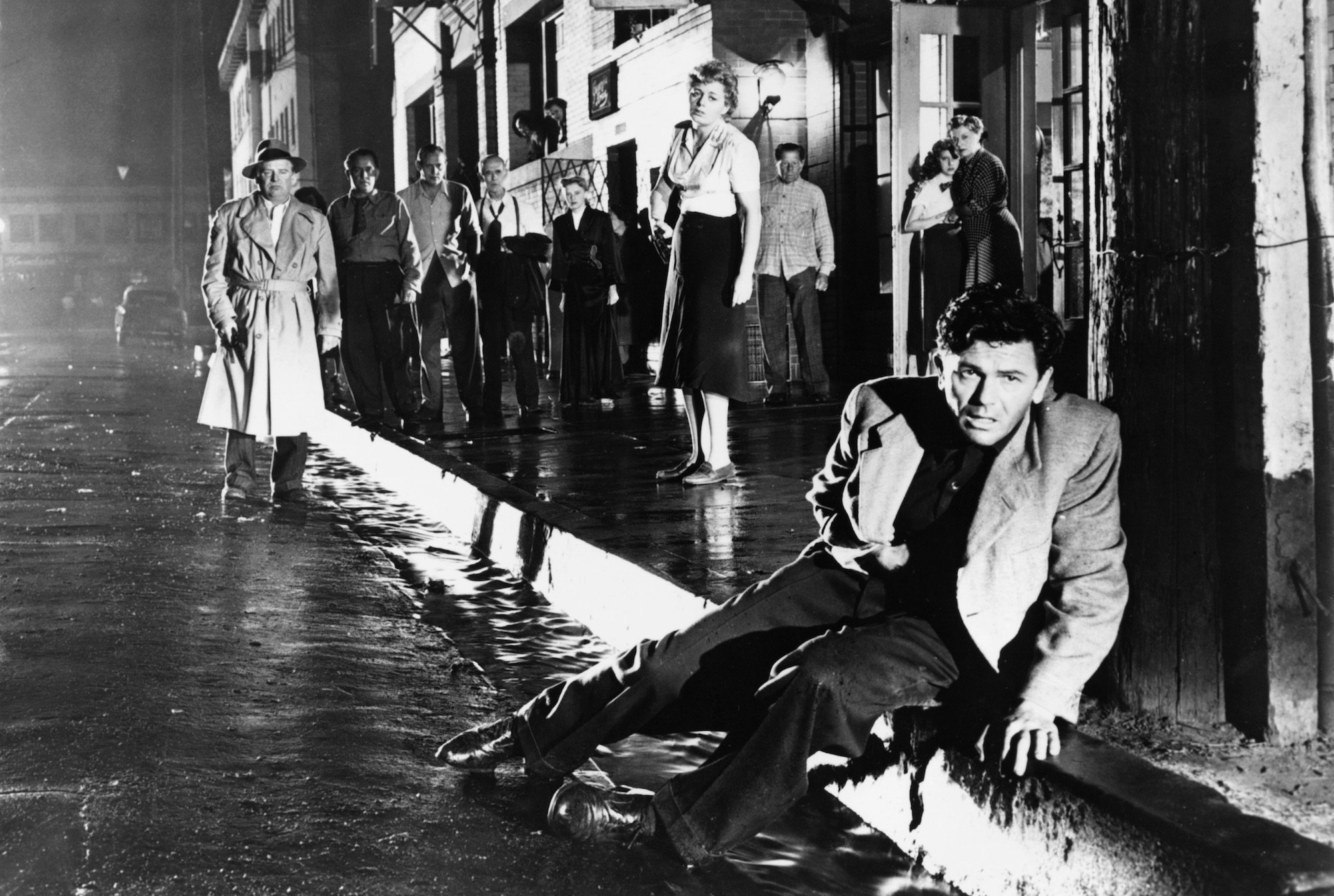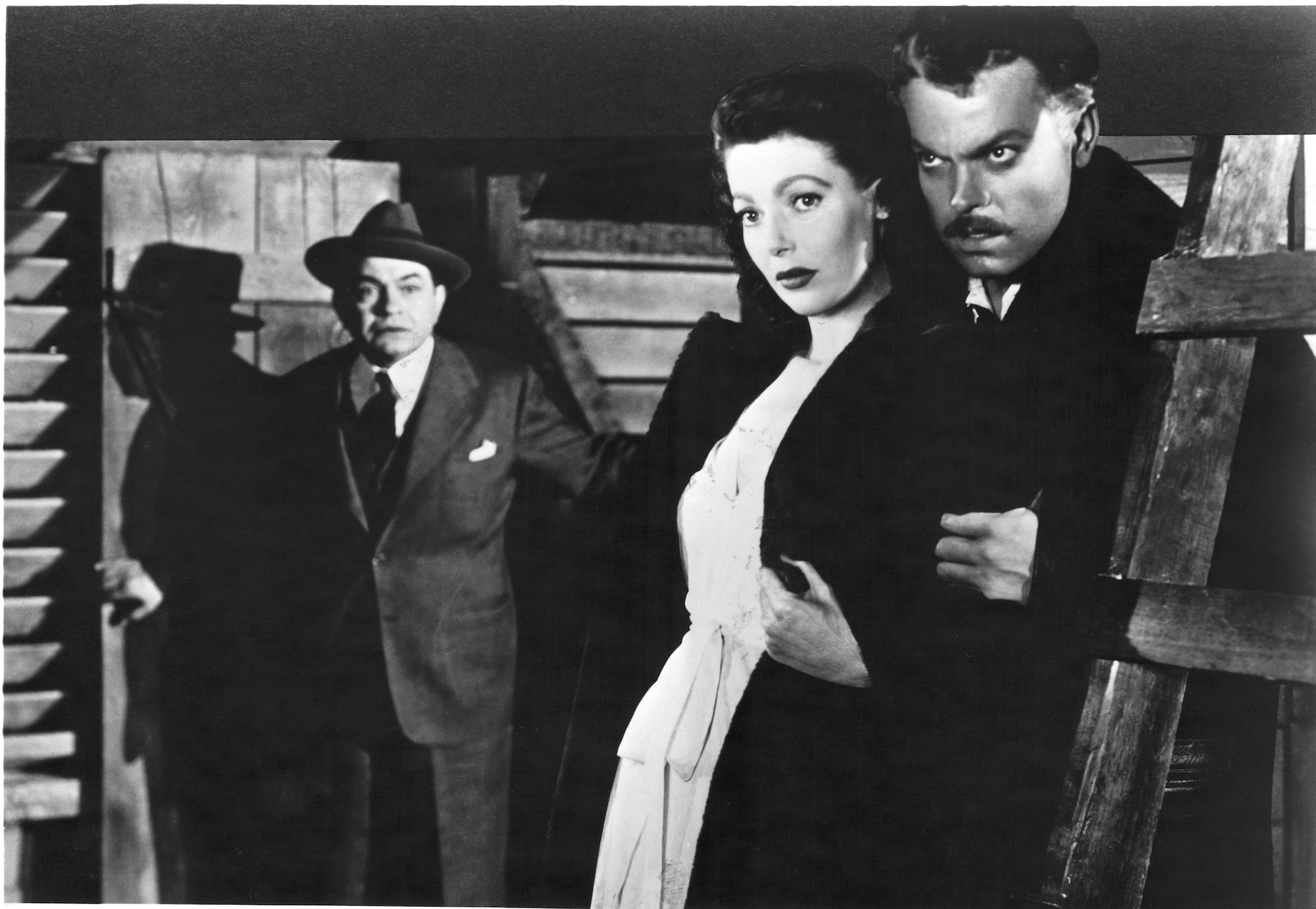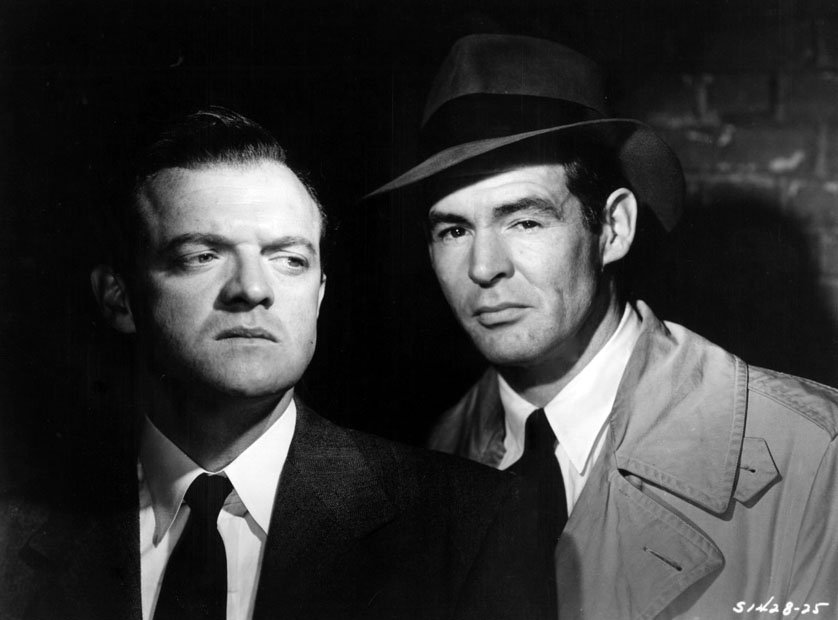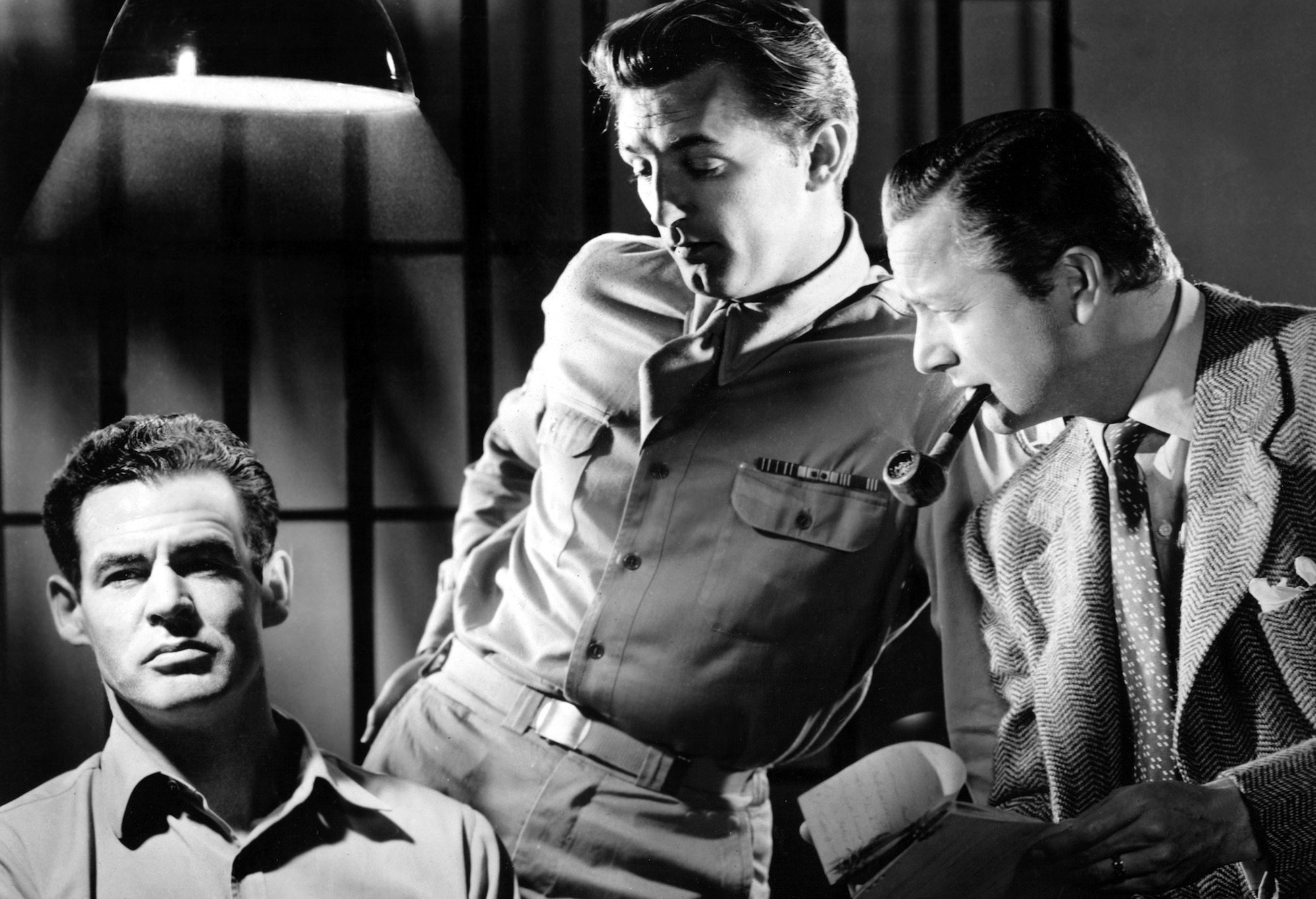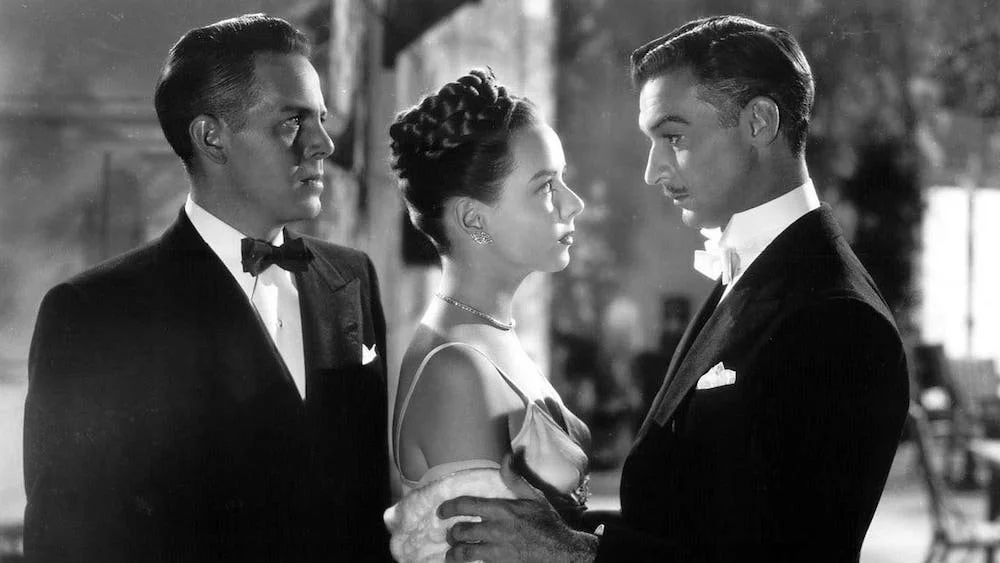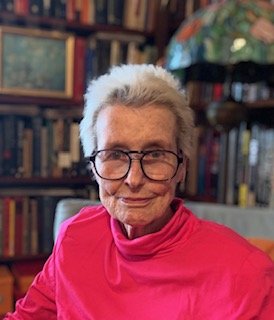1949 / 82 mins / b/w
Dir. Fred Zinnemann / Sc. Robert L. Richards / Cine. Robert Surtees
Cast: Van Heflin, Janet Leigh, Robert Ryan
Digital copy courtesy of Swank
The Manhunt No Woman Could Stop!”
Jewish émigré director Fred Zinnemann made four films in the 1940s that touched on WWII. Before he’d go on to direct his blacklist allegory classic High Noon, Zinnemann helmed lower-budget genre fare haunted by the Holocaust: Eyes in the Night (1942), The Seventh Cross (1944), The Search (1948), and Act of Violence (1949). Zinnemann’s parents died in the Holocaust, and he was one of the first Hollywood directors to film in postwar Germany and the first to portray a concentration camp. For The Search, he interviewed Holocaust survivors and even cast a survivor in a key role.
Themes of survivor’s guilt pervade Act of Violence. The film depicts an idealistic nation plagued by postwar trauma. Zinnemann contrasts the creation of a prototypically American suburb with a pair of former POWs for whom the war never really ended. He also wrestles with the guilt of informing at a time when the House of Un-American Activities (HUAC) sought to find informers to target subversive (often Jewish) writers and performers. Act of Violence transcends the plot mechanics of noir, as such, to reflect the obsessions of a Jewish filmmaker after the war. As Vincent Brook argues in Driven to Darkness, “Film noir, although certainly no cure-all for the Jewish émigré complex, offered a unique creative outlet for addressing some of the conflicts and alleviating some of the pain.”
Midway through Act of Violence, a character consoles the film’s despondent lead: “So you're unhappy? Relax. No law says you got to be happy.” The sentiment, cynical and pithy, distills noir pessimism down to its essence.
Fred Zinnemann’s Act of Violence as Jewish and L.A. Noir
Lecture by Vincent Brook
Act of Violence was directed by Vienna-born Fred Zinnemann, one of the filmmakers Brook focuses on in his book Driven to Darkness: Jewish Émigré Directors and the Rise of Film Noir (2009). The premise of the book is that while émigré directors in general have been duly noted for their outsize influence on the classical noir cycle (1940–1960), their Jewishness has almost totally been ignored. Brook argues that it was precisely their Jewishness, in an experiential rather than religious sense, which “drove” the Jewish émigré filmmakers to play such a seminal role in the formation and development of the cycle, and that Jewishness is also a distinguishing marker in their work. Unlike non-Jewish-émigré classics such as The Maltese Falcon, Murder My Sweet, and Out of the Past, featuring macho, tough-guy anti-heroes such as Humphrey Bogart, Dick Powell, and Robert Mitchum, Jewish émigré directors favored sensitive, artistic types, such as most of them saw themselves. Zinnemann, though less prone to this subset of Jewish noir, dealt with Nazis in The Seventh Cross and was among the first to touch on the Holocaust in The Search.
In this lecture, Brook will discuss the key issues addressed in Driven to Darkness with a focus on Act of Violence. In this film, his first full-fledged noir, Zinnemann took on survivor guilt — something he himself surely felt, having lost several relatives in the Holocaust. The film, like many noirs, also features Los Angeles as a character, milking the city’s ambivalence through a depiction of its seductive and seedy locations, and a baring of its crassly materialistic underbelly as a metonym for American society as a whole.
About Vincent Brook
Vincent Brook grew up on a chicken farm in the San Fernando Valley and now lives in the Silver Lake section of Los Angeles. He has worked as a film editor and screenwriter, earned two masters degrees (in art and film and television), and received a Ph.D. in film and television from the University of California, Los Angeles (UCLA). He has taught on the college level for over 30 years, including at Los Angeles Pierce College; California State University, Los Angeles; Loyola Marymount University; the University of Southern California (USC); and has been a regular lecturer at UCLA for the past 15 years.
He has written dozens of journal articles, anthology essays, encyclopedia entries, and reviews, and has authored or edited ten books. His published work has dealt mainly with media issues from a Jewish perspective. Most prominent among the books are Something Ain’t Kosher Here: The Rise of the “Jewish” Sitcom (2003), You Should See Yourself: Jewish Identity in Postmodern American Culture (2006, editor), Driven to Darkness: Jewish Émigré Directors and the Rise of Film Noir (2009), and From Shtetl to Stardom: Jews and Hollywood (2017, co-editor). Other, less Jewish-inflected books include two co-written histories of his current hometown—Silver Lake Chronicles (2014) and Silver Lake Bohemia (2017)—and a solo magnum opus, Land of Smoke and Mirrors: A Cultural History of Los Angeles (2013). His latest book, All About Eva: A Holocaust-Related Memoir, with a Hollywood Twist (2021), is a memoir based on his German-Jewish parents’ experiences during the Weimar and Nazi periods, and as émigrés in America in the late 1930s and 1940s.


